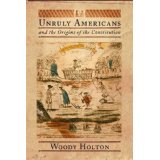 A petition of freedom from 20 slaves who were fighting in the Revolutionary War to the New Hampshire General Assembly was unearthed 30 years ago in the state archives of New Hampshire by Valerie Cunningham, a historian and preservationist from Portsmouth. The argument and irony of the petition has become well known to historians of the era and up to the Civil War that the colonists were fighting so hard for their own freedom from Great Britian yet were unable to see the plight of their slaves who wanted their own. Their petition was ignored as it was deemed not the right time to free them. Later, only 6 slaves were granted their freedom.
A petition of freedom from 20 slaves who were fighting in the Revolutionary War to the New Hampshire General Assembly was unearthed 30 years ago in the state archives of New Hampshire by Valerie Cunningham, a historian and preservationist from Portsmouth. The argument and irony of the petition has become well known to historians of the era and up to the Civil War that the colonists were fighting so hard for their own freedom from Great Britian yet were unable to see the plight of their slaves who wanted their own. Their petition was ignored as it was deemed not the right time to free them. Later, only 6 slaves were granted their freedom.
Now, 233 years later, it appears that the 14 slaves who were never granted freedom may receive it from the New Hampshire government. It is a symbolic decision, obviously. State Senator Martha Fuller Clarke is sponsoring the Senate bill, which has already passed through the Public and Municipal Affairs Committee and is now headed for the full Senate vote. Governor Maggie Hassan has already agreed to sign the bill upon approval by the full Legislature.
It calls attention to efforts of community organizations to protect and preserve the African burial grounds, culture, and contributions of the people. The African Burying Ground Committee in Portsmouth has been working for the past ten years to build a memorial park in an African-American burial ground in downtown. The funds are just not available, however, their hope is to break ground this summer with their design, including granite engravings with passages from the petition.
What do you think? Is it too little, too late? Or a needed gesture?
If you’d like to see more about the African Burying Ground Committee, the cause, and possibly make a donation, you can visit their website at http://www.africanburyinggroundnh.org/ .
You can read more about this petition here at the Boston Globe and see more about the memorial here at the City of Portsmouth.

